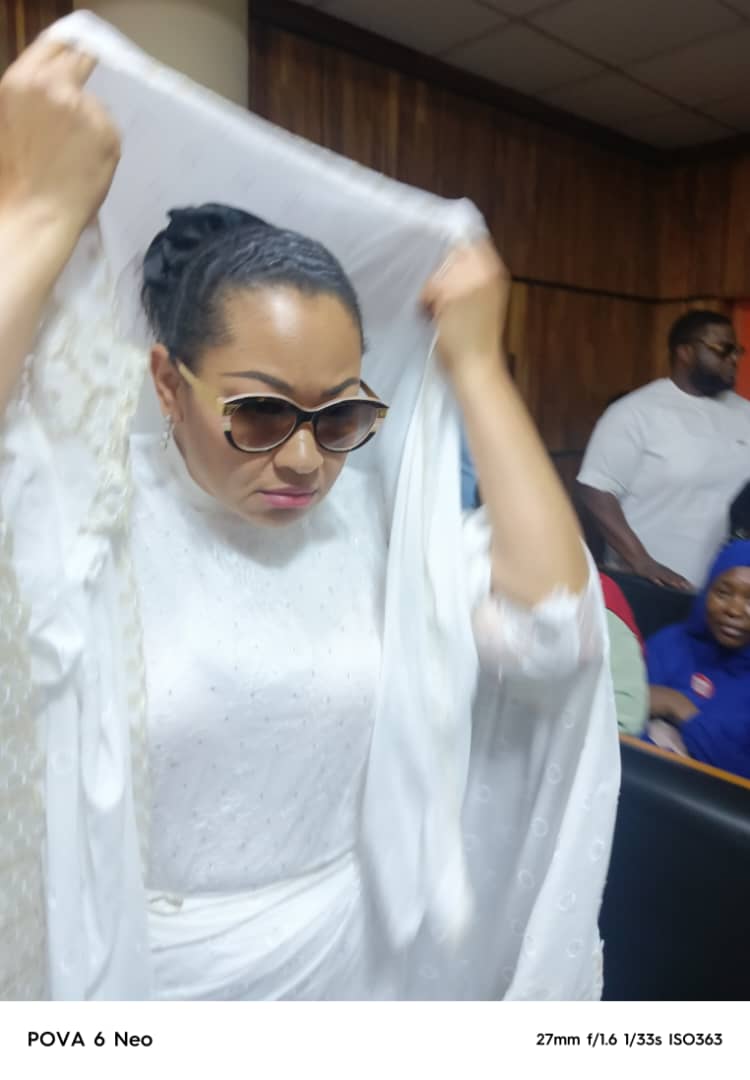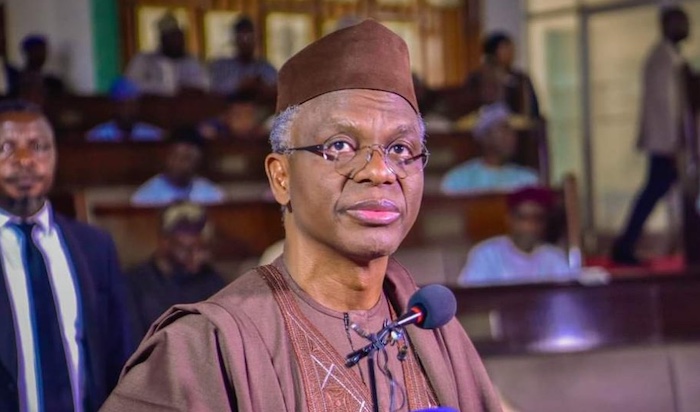Senator Bukola Abubakar Saraki is a member of the ruling class by birth, having been born into the Senator Olusola Saraki’s political dynasty in Kwara State.
The young Bukola, like most privileged children of the elites, had his path to success well laid out. He had the best education both in Nigeria and the United Kingdom.
He also quickly cut his teeth in leadership at a tender age, jumping on the board of Societe Generale Bank in 1990 at just 28, after a one-year practice as a medical professional in the UK. Bukola had rapid boardroom capacity development and corporate leadership in the space of 10 years with SG (1990-2000).
And at the young age of 38, he entered into public service, becoming the Special Assistant on Budget to President Olusegun Obasanjo in 2000. He held this position for the president’s full first term and was credited for initiating the famous and widely praised Fiscal Responsibility Bill.
In 2003, Bukola Saraki took his political career home to Kwara State, where he contested and won the seat of Governor with a large margin. Many attributed his victory to the existing political power structure of his father, but Saraki would prove everyone wrong when he went against his father’s dictates and contested against the Saraki’s political lever in 2007. He emerged victorious again, and just then announced his arrival to mainstream politics in one single swipe.
Bukola Saraki was no longer that protegee and son of Chief Olusola Saraki, who enjoys the mercies and support of his father’s friends -individuals (mostly retired generals and first republic politicians) who maintained a nation-wide grip of power, each running their own political caliphates, states by states, zone by zone.
Bukola became a brewing storm in the teacup because the growth of his influence was sporadic, his political style unusual, views contemporary and revolutionary. Bukola came with the position that threatened control and centralization of power.
There was a worry about his mysterious style, unpredictability, unusual desire and ability to work with people across political divides. He had also proven to be too independent and headstrong, that quickly cemented the perception that the boy was headed for a solo run, a development that started setting out political enemies and stiff opposition for the new Saraki.
Power brokers started noticing how this new kid on the block gets through with all he sets to do politically, without an expected subscription to the loyalty demands, nor referencing of the supremacy of the power court. The Saraki Jnr at this point, had gone rogue.
He would beat off his father’s power play to take one of the three senatorial seats in Kwara, after successfully doing two terms as governor and installing his chosen successor. Even so, just at his second term as a senator of the federal republic, Bukola Saraki played grandiose national politics by winding his way to the seat of the senate president, against the wish of his party and national political bigwigs. Dr. Bukola Saraki’s adversary grew quite rapidly. Even now, drawing battle plots all across the country, particularly with the organized political South West, whose regional agenda (as led by Senator Bola Ahmed Tinubu) took a massive hit with Saraki’s emergence as Senate president.
Into his term as Senate President, Bukola Saraki was famous for his independent opinions and audacious stand against the Federal Government and his party’s leadership. He led the 7th assembly to earn the reputation of total independence, an impressive allusion to the principle of separation of power.
For the first time in Nigeria’s about 2 decades of democracy, there was a Senate that was largely non-partisan. Bukola’s complete grip of the very volatile senate presidency seat shocked many. In previous assemblies, Senate leadership was only as stable as the extent of party loyalty.
Here was a 50-year-old senate president whose leadership was never in contention, had to support across party lines and even enjoyed the activism of some apostle-colleagues, who would go against any view or move to unsettle or question his authority. Without any doubt, Saraki led the most independent and stable Senate in our recent political history.
This also came with its own harvest of political enemies. Young Saraki in his political journey had congregated so much foe-men that it is not illogical to expect the relentless call for his head.
In the space of 12years from when Bukola rooted his political career as Governor of Kwara state, there hasn’t been a year without a big case hanging over his head. From anti-graft bodies to party’s disciplinary committee, the police force, DSS, and recently the Code of Conduct Bureau, Bukola Saraki seems to be under constant investigation, always answering to one summon or the other.
This dates back to his tenure as Kwara State governor, particularly during his second term. Senator Abubakar Saraki, his wife, family, friends, and associates had government searchlight constantly beamed at them. From 2003 – 2007, Saraki had seven separate investigations done on him by the EFCC, none of which resulted in any conviction. The matters either ended in a judgment in Saraki’s favour or a total case abandonment for lack of merit and traction.
The Economic and Financial Crimes Commission(EFCC) has had a steady run on Saraki. In more recent times this seems to have garnered more fire. A lot of people keep wondering if the resources available to the EFCC suddenly swells when it bothers on anything Saraki. For an organization that has a hip of inconclusive case files in several courtrooms across the nation, it is bewildering that it seems to open fresh cases against the Senate president every 6-8months.
Questions are being asked if this special attention to details and concerted effort is not worthy for the investigation and conviction of several public office holders the organization has fingered in recent times.
There is also a particular momentum in the unearthing Saraki’s dirts’ effort of the Magu dispensation of the EFCC. It seems rather peculiar to Saraki, that even hitherto closed investigation, some over a decade-old, are getting reactivated. Previous EFCC bosses reached conclusions on some allegations of financial crime against Saraki during his term as Kwara Governor. It is strange that Magu would discredit the positions of his predecessors by launching new inquiries into activities as far back as 16 years. Kudos to that level of commitment from an EFCC boss who took 17 months to charge former SGF, despite the substantial report of the Presidential Investigation Panel (led by Vice President Osinbajo) that led to his sack.
This backward pry into Saraki is also very unique to him. Erstwhile governors of same dispensations as Saraki, whose investigation and prosecution on financial crime matters was hindered by immunity are still drumming their political careers at this time without any worry. This preference for Saraki’s cases only lifts the lid on people’s curiosity. Could there be a covert intent and purpose of the Magu-led EFCC on Saraki?.
Will it be out of place to adduce that it has a spatial relation with the Senate’s refusal to confirm Magu as the substantive chairman of the EFCC?
Since Ibrahim Magu was appointed by Buhari as EFFC chair in November 2015, he has worked in an acting capacity, since the Senate rejected his appointment on two occasions.
With this Magu will be the ONLY chairman of the EFCC, whose appointment was never confirmed. You would recall that the Senate had unanimously voted to reject Magu based on the report of the SSS about his suitability for the job, but Buhari has kept him as chairman rather than send a replacement to the Senate. It is rather too circumstantial that the leadership of the Senate quickly attracted the investigative powers of Mr Magu’s EFCC more vigorously after.
In September of 2006, Nuhu Ribadu, then Chairman of EFCC, took to the floor of the Senate to give a clean bill to six states, of which Kwara was one. Under Ribadu’s successor Waziri’s Chairmanship, Kwara Local Council was investigated in 2010 at the time that Dr Saraki joined the presidential race. Then, in 2011 at the same time that the Senator raised a motion on the floor of the senate, he was investigated by SFU, but the Ministry of Justice wrote to him clearing his name of any wrongdoing. Meanwhile, under his Governorship, Kwara State was the first state to open its accounts up to public scrutiny, and the first to gain an internationally recognized Fitch credit rating.
Notably, most of the investigations have taken place after Senator Saraki raised issues of public concern, such as the mismanagement of the fuel subsidy, or when he was pursuing his presidential ambition.
The newly announced investigations, by EFCC, on Saraki’s time as Governor which ended over 12 years ago, point to questionable motivations for the investigations.
In 2003/4, whilst Governor, Senator Saraki gave up his immunity to answer questions on SGBN and till date, he is one of only two governors in the history of Nigeria to ever give up immunity.
Victor Ojelabi is a social commentator, wrote from Ilorin, Kwara State.

 BIG STORY2 days ago
BIG STORY2 days ago
 BIG STORY4 days ago
BIG STORY4 days ago
 BIG STORY2 days ago
BIG STORY2 days ago
 BIG STORY4 days ago
BIG STORY4 days ago
 BIG STORY2 days ago
BIG STORY2 days ago
 BIG STORY4 days ago
BIG STORY4 days ago
 BIG STORY4 days ago
BIG STORY4 days ago
 BIG STORY3 days ago
BIG STORY3 days ago
























